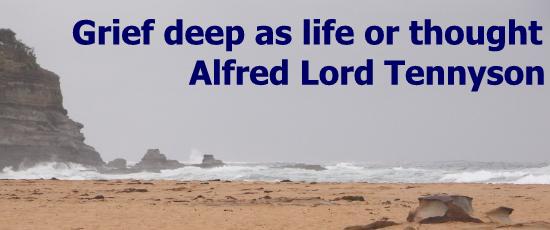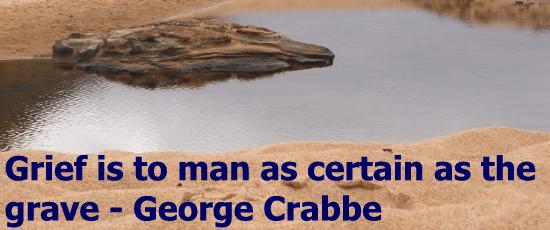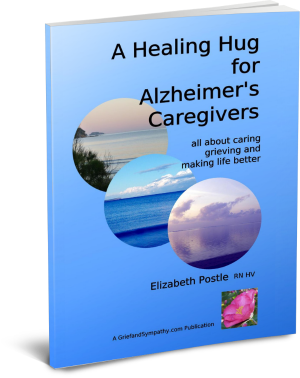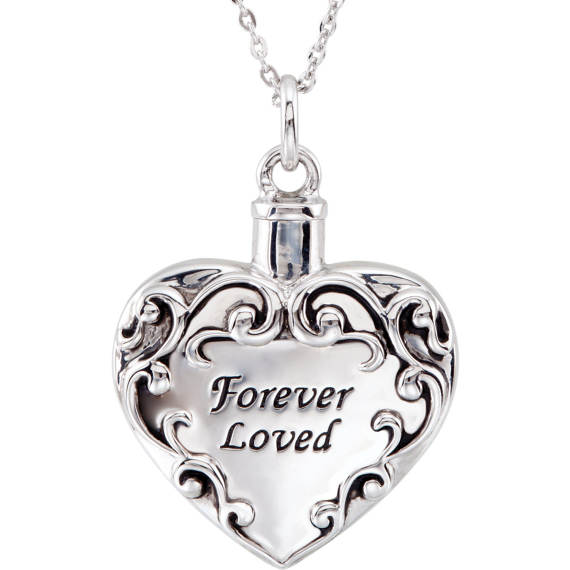What is Grief? - Some Definitions and Links to Comfort and Support . . .
What is grief?
- Dictionaries define grief as “an emotion of great sadness associated with loss or bereavement”, or “deep mental anguish following a bereavement”.
- Another grief definition might be: “keen distress or suffering especially at the death of someone”.
- But grief is not just deep sadness. It can involve many other emotions of grief, such as denial, pain, guilt, anger, resentment, jealousy, depression, but finally acceptance.
- And grief is not just caused by the death of someone dear, as we show below. It can be caused by loss of jobs, homes and many more of life's stresses.
- Some people use the '5 stages of grief' to define the process. These are denial, anger, bargaining, depression, acceptance. Read more about the origin of these stages here.
See below for definitions for complicated, traumatic, anticipatory, ambiguous loss and disenfranchised grief.

Grief may also include physical symptoms such as shock, numbness, loss of appetite, nausea, sleep disturbances, loss of libido, and many general aches and pains.
In complicated grief there may be more severe symptoms such as those that occur in post traumatic stress disorder and it tends to go on for longer. Read about how to deal with it here.
See also our page of beautiful definitions of grief from our colleagues and experts.
Types of Grief
Grief can be for:
Loss of a baby, child or teenager
Loss of a twin
Loss of a young adult
Loss of a brother, sister, best friend
No one bereavement is ever like another. There can be death after a long illness, sudden death, accidents, suicide, overdose or self-harm. Loved ones are lost after a murder, or they can just disappear and no-one knows whether they are alive or dead.
Read more about bereavement and mourning
Learn about the causes and how to prevent and cope with suicide

What is Anticipatory Grief?
Anticipatory grief is for the loss of someone who hasn't died yet, or it can be for yourself if you have a terminal illness.
Examples of anticipatory grief are for:
- Someone with a terminal illness - see also 'What to say to someone who is dying'
- Someone in a coma or vegetative state
- Someone with dementia or Alzheimers' disease
Read more about anticipatory grief.
If you have a loved one with Alzheimer's disease, you might find my book useful. Click on the image for more information.
What is Disenfranchised Grief?
As well as grief for someone who has died or disappeared, there are many other losses in life which can cause serious emotions of grief. People often don’t realise that you are suffering from grief in these situations, and this is sometimes referred to as disenfranchised grief.
We have a long list of pages of examples of disenfranchised grief here.
What Is Ambiguous Loss?
The most obvious type of ambiguous loss, a term which was coined by Dr Pauline Boss, refers to missing persons. It can also be grief when children leave home, or a relationship ends.
What is Traumatic Grief?
Traumatic grief occurs usually after sudden violent loss from major natural disasters, war, major transport disasters or terrorist attacks.
See our page on 'Veterans' Grief' for how to cope.
See also Loss of a Home through Natural Disaster.
It also occurs after violent deaths by murder, which can evoke many complicated emotions of bitterness, hate and revenge towards the murderer as well as the normal emotions of grief.
What is Complicated Grief?
This is grief that does not resolve itself naturally but seriously affects the person’s ability to function. It usually requires treatment.
Complicated grief may often be associated with traumatic grief, but often occurs in situations where the person is not able to acknowledge or seek support for their grief.
Learn how to deal with complicated grief here.
RElated Pages:
Definitions of Grief by the Experts
Elizabeth Kubler-Ross and the 5 Stages of Grief
- Grief and Sympathy Home
- Other Types of Grief
Where to get help:
Have You Considered One-on-One Online Grief Counseling?
Get Expert and Effective Help in the Comfort of Your Own Home
The following information about online counseling is sponsored by 'Betterhelp' but all the opinions are our own. To be upfront, we do receive a commission when you sign up with 'Betterhelp', but we have total faith in their expertise and would never recommend something we didn't completely approve.
Do you feel alone and sad with no support and no idea how to move forward? It can be tough when you are stuck in grief to find the motivation to get the most out of your precious life.
Online counseling can help by giving you that support so you don't feel so alone. You can have someone to talk to anytime you like, a kind and understanding person who will help you to find meaning in life again, to treasure the memories of your loved one without being overwhelmed and to enjoy your activities, family and friends again.
- Simply fill out the online questionnaire and you will be assigned the expert grief counselor most suitable for you. It only takes a few minutes and you don't even have to use your name.
- Pay an affordable FLAT FEE FOR UNLIMITED SESSIONS.
- Contact your counselor whenever you like by chat, messaging, video or phone.
- You can change counselor at any time if you wish.
- Click here to find out more and get started immediately.
- Or read more about how online counseling works here.
Sales from our pages result in a small commission to us which helps us to continue our work supporting the grieving.
Hypnosis for Grief - 10 Ways It Can Help You
Try a gentle hypnotherapy track to relax the mind. Learn how self-hypnosis can help you cope with grief at any time of the day or night.

For Remembrance:
Sales from our pages result in a small commission to us which helps us to continue our work supporting the grieving.
Memorial Jewelry to Honour a Loved One
Check out our lovely range of memorial jewelry for any lost loved one. Pendants, necklaces, rings or bracelets, we have them all in all kinds of styles. Choose for yourself or buy as a sympathy gift.
Create an Online Memorial Website
Honour your loved one with their own memorial website. Share photos, videos, memories and more with your family and friends in a permanent online website. Free for basic plan with no ads.









